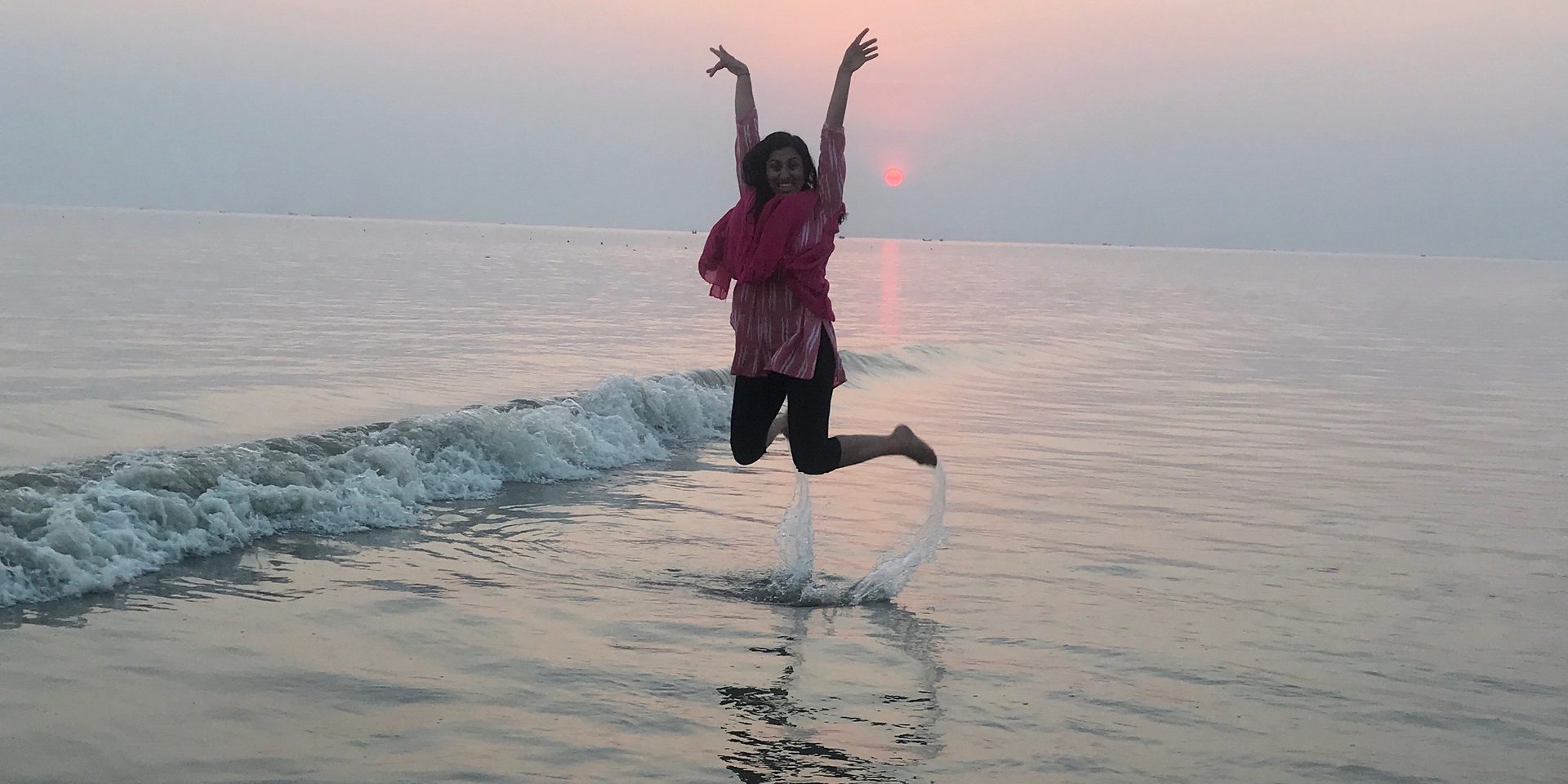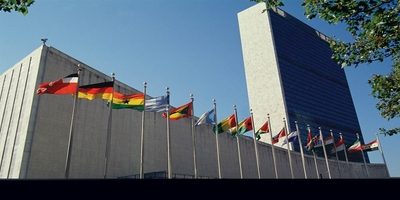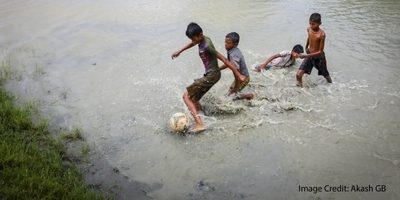
Medhavi Gupta: drowning prevention in Bangladesh
Medhavi Gupta is a PhD student, currently undertaking her research at The George Institute for Global Health, Injury division. Her research focus is on drowning prevention, in particular, the development and evaluation of drowning reduction programs in Bangladesh and India.
How long have you been working at The George Institute?
I joined in February 2018! It hasn’t even been a year, but it felt like home very quickly.
What attracted you to working at The George Institute?
It was the opportunity to get involved with work all around the world! There are projects in different countries, so there’s so much variety and so much opportunity to learn. I have worked on different pieces of work from Australia, Bangladesh, India, the Pacific region. I am learning so much about the global context.
What is your area of research and how does it help people lead healthier lives?
So I am looking at drowning prevention! Most people don’t know that it’s one of the biggest killers in the world. Over 370,000 people die each year and ten times as many have near-drowning experiences. Most of these deaths happen in low-income countries in rural coastal areas, where people live near open water ponds. It’s the young kids most at risk - they just wonder a little away from home and within a minute or two have fallen into the water and drowned.
So firstly I’m evaluating a current program in Bangladesh that aims to reduce drowning. The program provides child care services for young kids and swimming classes for older kids. In Bangladesh, drowning is the biggest killer of 1-4-year-olds! Secondly, in West Bengal in India, we are starting from scratch. We first are trying to find out how big the issue of drowning is and understand the risk factors, and then we will go ahead and design and implement a program.
What can we do to prevent drowning?
Lot’s of things! If you don’t know how to swim, learn how to swim and make sure your kids can too. Actually, kids can start learning from the age of 4. Learn basic rescue and first aid. If you have young children, make sure you have barriers to prevent them from leaving the house. Cover any pots and pans you have on the floor that contain water.
What is a recent professional highlight?
I submitted my first paper as the first author! Of course, couldn’t have done it without the support of an awesome supervisor and team. Now comes the slow process of facing rejections and re-submissions. But they say the first time is the hardest!
In your opinion, what is the biggest challenge today when it comes to public health and Injuries?
I think there is a lack of awareness on how big of an issue injuries are. They are largely ignored by policy makers and the public alike. Maybe because people don’t think of injury as something you can systematically prevent, it’s more seen as a personal responsibility. Like you need to protect yourself from burns and road traffic injuries and drowning. But this attitude makes it difficult to get governments and health systems to take responsibility and do something about it.
We need to work from different angles to solve this issue. For example, we need to work with more media outlets to get news of drowning deaths out there. We also need to collect more robust data on drowning and find ways of monitoring drowning regularly so we know how it changes throughout the year and when the risky periods are. If we have the data, at least we can start mobilizing people and organizations and policymakers.
Once we know it’s a problem, we need to make it a priority, and again this comes down to people mobilization and connecting it with what’s happening on the world stage. For example, linking drowning to climate change may just get it more traction.
What motivates you most in your work?
Lot’s of things! I enjoy the process of writing and getting thoughts onto papers, so that’s always satisfying. I like knowing that the work I’m doing is going to actually be used in a practical sense. The team here is also awesome, and they keep me happy and motivated! There’s a lot of positivity and hope in people at the George, which is nice.
How did your career in health get started?
I volunteered in various places, such as rehabilitation clinics and Lifeline. I guess I believe that first and foremost, you need a healthy body and mind!
To explain to people what I do I say…
I am looking at ways to prevent drowning in India and Bangladesh rural communities.



